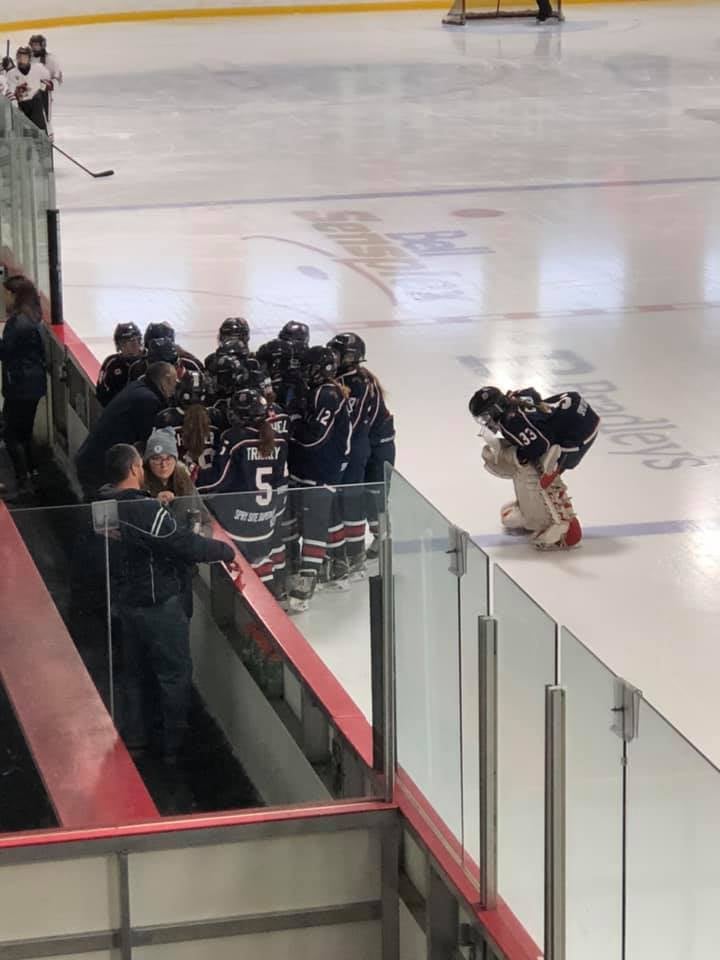Excellence doesn’t happen by accident. It’s a process. It’s a daily grind of doing the little things right.
A wise coach once told me,
“The way you do anything is the way you do everything.”
If you put a half-effort towards your school work, your training, your relationships, your family time, then it should come as no surprise that you put in a half-effort when it comes to playing the game itself.
“The way you do anything is the way you do everything.”
If you want to be successful, in hockey or any of your other endeavours, this 7-Step process will get you there…. IF you follow through and don’t skip steps, giving every step your full effort.
1 – Define what “Success” means.
What are you trying to accomplish? Success must be measurable.
Remember, this is your success, not your coaches’ success or your parents’ success. You are doing this for YOU, because YOU want it.
I want to make the AAA team in 2025 is a measurable, yet vague definition.
I want to make the Toronto Marlboros AAA team as a top two defenseman in 2025 is a better definition.
“I will work hard.” isn’t measurable.
“I will train at >80% capacity for two hours at least five days a week.” is measurable.
“I will run wind sprints.” isn’t measurable.
“I will run wind sprints for an hour a day, three days a week.” is measurable.
Attack success! Don’t fear failure! The stumbles and struggles are what make you better. They are what make you stronger. Embrace them!

2 – What resources are available to you?
Coaches, parents, teammates, training facilities, instructors, research facilities, the Internet, etc. are all resources that are available to you. List every resource that you can think of and then come up with a way that you can use that resource to help you reach your goal.
Give every resource a measurable metric.
I will work out for three hours a week in the weight room. I will research two Universities every evening to see if they are a good fit for me. I will make a list of 10 questions for my parents, my coaches, my teammates and use that to help me improve.
3 – What are the roles and responsibilities of the resources available?
What do you expect your parents to help you with? Is that expectation reasonable? Are they willing to give you that type of support?
If the answer is “Yes” then fantastic. If the answer is “No” then reset and come up with a new role / responsibility that works.
Do this for EVERY role and responsibility that you listed. There may be dozens. Your list may seem far too large. Pat yourself on the back, you have an incredible support structure. The longer the list of resources, the more likely you are to hit your marks.

4 – Focus relentlessly.
There will be days when you don’t want to workout, train, or maybe have anything at all to do with taking steps towards your dream. Those are the days that matter the most.
“You can’t get much done in life if you only work on the days that you feel good.” — Jerry West
The first thing you think about when you wake up should be your dream. It should be the last thing you think about when you go to bed.
Push through the hard days and amazingly, you will have a lot less of them.
5 – Write down every hurdle that you might come across.
Most dreams are derailed by a single setback.
List out the things that could happen; injury, no ride to training facility, time conflict with job, unexpected school work, etc. Then, come up with contingency plans to circumvent every setback.
No ride to training? Have a workout ready that you can do at home. No weights at home? Come up with something to use as weights. You get the idea. There is a solution to every problem if you look hard enough. Don’t wait until the problem arises to try and solve it.

6 – Train at a tempo and in an environment as close to a game as possible.
There is a philosophy prevalent in the sports industry that you learn a skill in slow motion and then gradually, as you become more proficient you can increase the speed of the skill.
In theory, this works. In practice, it doesn’t.
Learning a hockey mechanic in slow motion teaches your muscles to do it in slow motion.
In reality, when we repetitively perform an action, our body builds information pathways to tell the muscles how to activate. If we do the motion slowly the pathways created are different than if we do it quickly or at game speed.
Make yourself uncomfortable. That’s where the magic happens. Push yourself to the point where you can no longer perform the skill perfectly. Ride that thin line and guess what…. you’ll be able to perform at that speed. The push it some more. This is the good stuff. This is the “magic”. This is progress.

7 – Post-Mortem
Once a week look back on your training and jot down what went well and what went sideways. Now… come up with solutions to the areas that are sideways. You just made next week a bigger success than this one. Lather, rinse, repeat!
Just think, if every week is better than the last then you are improving every week.
That’s why the process works.
Are you ready to get started!
We would love to help! Just ask!
Go2TheMax.com
Creating great people.
We happen to coach hockey.

